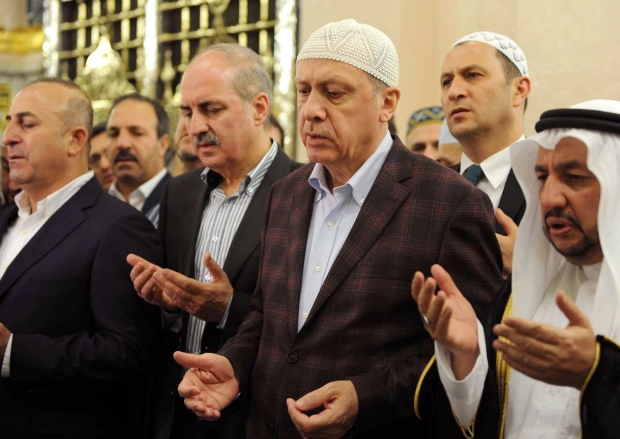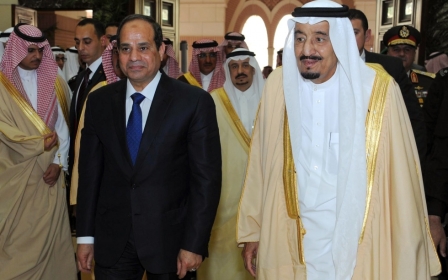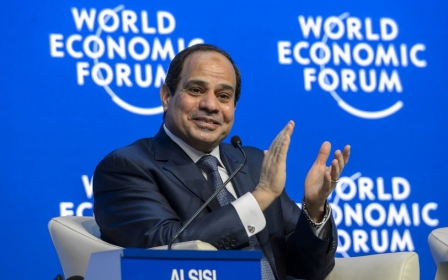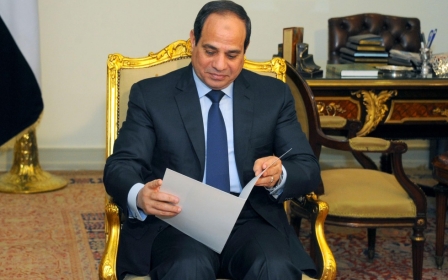Turkey's president in Riyadh amid 'change' in Saudi policy
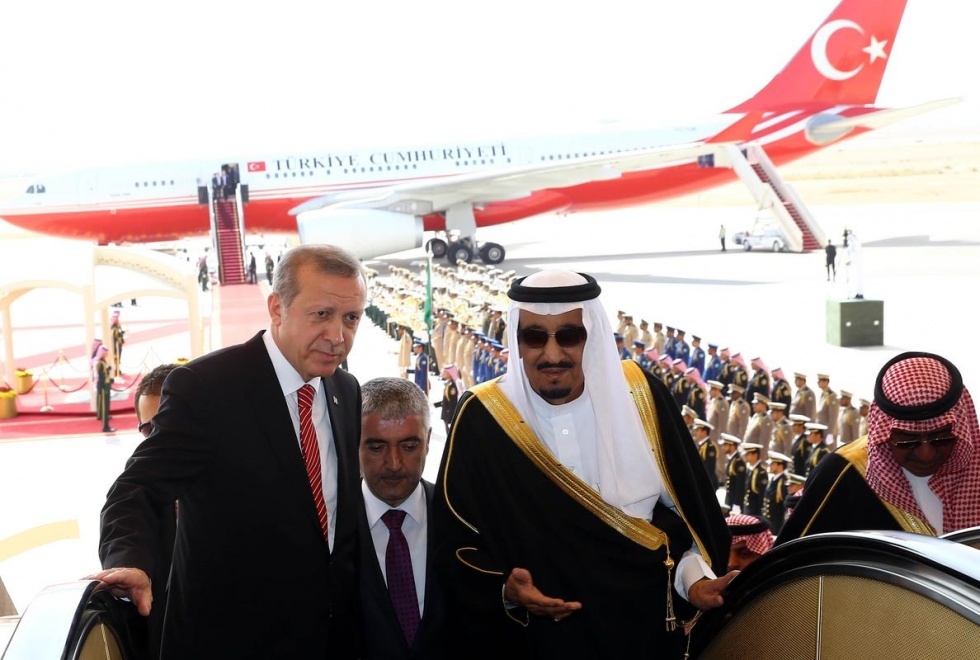
Turkish President Recep Tayyip Erdogan arrived Monday in Riyadh for a visit at the Saudi king's invitation in what is seen as a bid for reconciliation.
Erdogan's meeting with King Salman comes a day after Egyptian President Abdel Fattah al-Sisi held talks with the monarch, and precedes a visit by Pakistan's Prime Minister Nawaz Sharif later this week.
The leaders of neighbouring nations Qatar, Kuwait, Jordan and the United Arab Emirates have already visited Salman since mid-February, and other Arab heads of state will follow, said Nawaf Obaid, a visiting fellow at the Belfer Center at Harvard University in the United States.
"Saudi Arabia is drastically going to re-energise its foreign policy to bring the kingdom back to its natural role as the main unifier of the Sunni world because of its unique attributes," Obaid told AFP.
He was referring to the kingdom's hosting of Islam's holiest sites, the size of its economy, and its position as the world's largest oil exporter.
"Clearly, things are shaping up in a very different way than they have been in the last several years."
Salman acceded to the throne in January after the death of King Abdullah, aged about 90.
Erdogan arrived in Riyadh after performing a weekend pilgrimage in the Muslim holy city of Mecca and visiting Medina.
Cairo has accused Turkey of interfering in Egypt's internal affairs and of supporting the Muslim Brotherhood.
Sisi and Erdogan have had strained relations since Sisi ousted president Mohamed Morsi in 2013, launching a crackdown on his Muslim Brotherhood which Qatar was also accused of backing.
But Obaid said keeping Turkey "on the sidelines" only weakens the Sunni world.
"So as long as you can start having a serious sustained discussion between the major Sunni powers then you can come up with some form of policy at some point down the road, dealing with Iran and dealing with ISIS," he said, referring to the Islamic State group which has seized large parts of Iraq and Syria.
Erdogan is accompanied by his wife Emine Erdogan, Deputy Prime Ministers Yalcin Akdogan and Numan Kurtulmus, Economy Minister Nihat Zeybekci, Foreign Minister Mevlut Cavusoglu, presidential spokesman Ibrahim Kalin and Undersecretary of the Ministry of Foreign Affairs, Feridun Sinirlioglu.
Before departing from Istanbul on Saturday, Erdogan said in a press conference that the visit marked an occasion to boost cooperation between the two countries in all fields and discuss the ongoing crises in the Middle East.
"We will discuss the latest situation in Syria, Palestine, Libya, Egypt and Yemen," Erdogan said, adding that the war against terrorism would be another topic high on the agenda.
Erdogan said that Turkey had similar stances with Saudi Arabia regarding many regional problems.
The Turkish and Saudi leaders discussed "means of enhancing bilateral cooperation in various fields, issues of common interest" and external developments, said the official Saudi Press Agency.
Saudi Arabia and its Sunni Arab neighbours are part of a US-led military coalition conducting air strikes against IS.
Shiite-dominated Iran – which is helping Iraq battle IS - competes with Saudi Arabia for influence in the region.
New MEE newsletter: Jerusalem Dispatch
Sign up to get the latest insights and analysis on Israel-Palestine, alongside Turkey Unpacked and other MEE newsletters
Middle East Eye delivers independent and unrivalled coverage and analysis of the Middle East, North Africa and beyond. To learn more about republishing this content and the associated fees, please fill out this form. More about MEE can be found here.


